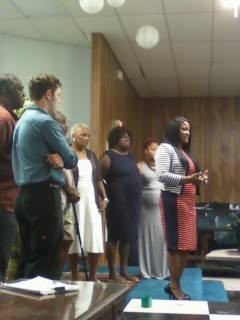Marcus Walker says he was beaten by a Memphis Police officer during a routine traffic stop one night in 2011. He’d been pulled over for a revoked license, and he says he left the car to go into his nephew’s mother’s home and get her because police were beating her son, who’d been in the backseat and had cursed at an officer. But Walker says an officer grabbed him and hit him as well.
“They wouldn’t let me go in and get her. They put me on the car and handcuffed me and sprayed me with Mace,” Walker said. “And then I could feel licks coming upside my head and back. I felt one guy pull my arms up, and then he kicked my feet out from under me. I fell on my face and shoulder.”
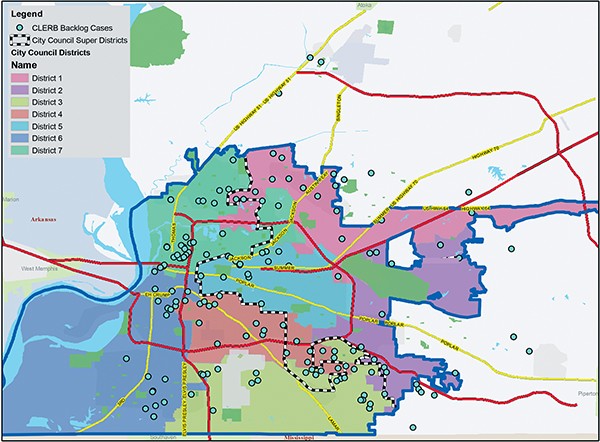
Map of people referred to CLERB while it was inactive
Walker was arrested for disorderly conduct, but his charges were later expunged. His case is one of at least 186 that were referred to the Civilian Law Enforcement Review Board (CLERB) during the time the board was inactive between 2011 and last year. The CLERB is a volunteer board tasked with hearing cases of police misconduct that were not sustained by the Memphis Police Department’s own Internal Affairs complaint process. The board can recommend punishment for officers to the police director, but it cannot enforce penalties.
The CLERB was active from 1994 to 2011 but eventually fizzled out. The original board lacked power to subpoena witnesses and documents. However, last fall, the Memphis City Council voted to allow the board to indirectly subpoena officers and paperwork through the board’s liaison on the council.
But on July 19th, the Memphis City Council will vote on possibly removing that power. Worth Morgan, the Memphis City Council public safety chair and the CLERB council liaison, is sponsoring the amendment to the CLERB ordinance because he says the council doesn’t have legal authority to subpoena witnesses and documents for other boards.
“According to the city charter, the council has authority to subpoena people and documents to the meetings of the city council, but we don’t have the authority to subpoena people to appear at a meeting that’s not of the city council,” said Morgan, citing an opinion by council attorney Allan Wade last year.
Morgan said the board could get direct subpoena power, without having to go through the council, by a voter referendum.
But Paul Garner of Memphis United, which last year led the push for CLERB to have subpoena power through the council, said the subpoena power issue was vetted last year before the original ordinance passed.
“This is a hasty attempt to remove subpoena power without taking the time to go back over the deliberations that took place over months and months last year with all parties involved and Wade giving his opinion before the council took a vote on it,” Garner said.
Morgan’s amendments also include a change to ensure all CLERB meetings are open to the public. At the first meeting of the new CLERB board in April, the public was asked to leave while the board deliberated a case during executive session.
“For CLERB to be successful, it needs to be a fair, open, and honest process. We need to make sure all meetings are in compliance with the state open meetings act,” Morgan said, noting that he thought the board was wrong to ask the public to leave at the last meeting.
Garner put in a public records request with the city to find out how many people were referred to CLERB during the time the board was inactive. Memphis United has compiled city maps of the addresses of those affected to determine the demographic hit hardest by the lack of a board from 2011 to 2015. They found that 81.5 percent of those cases involved minorities who lived in mostly low- to moderate-income areas.
“It’s not just concentrated in black and brown neighborhoods. It’s the black and brown communities that border the predominantly white parts of town, and that brings up some other questions about how policing works in certain communities,” Garner said.
Garner said his group made the maps to illustrate how real people are being affected while the council debates the language of the ordinance that was passed last year.
“What we really want to convey is that this debate about how much power this board should have has being going on for almost two years,” Garner said. “I’m tired of this being about politics and pandering. These are real people this is directly impacting.”

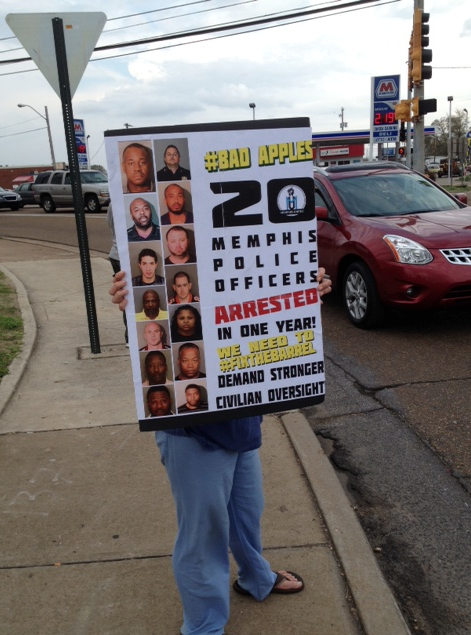 Louis Goggans
Louis Goggans 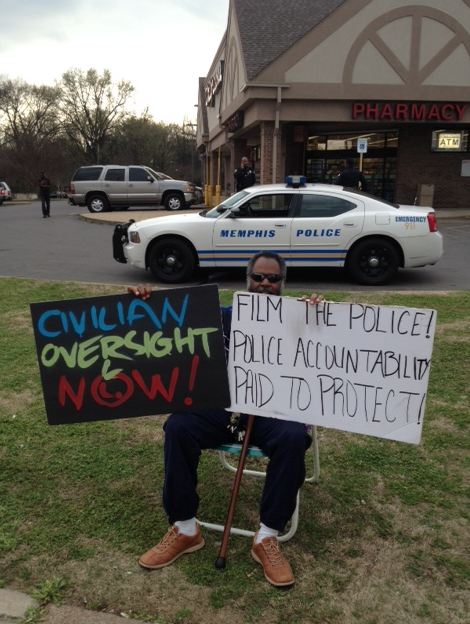 LG
LG 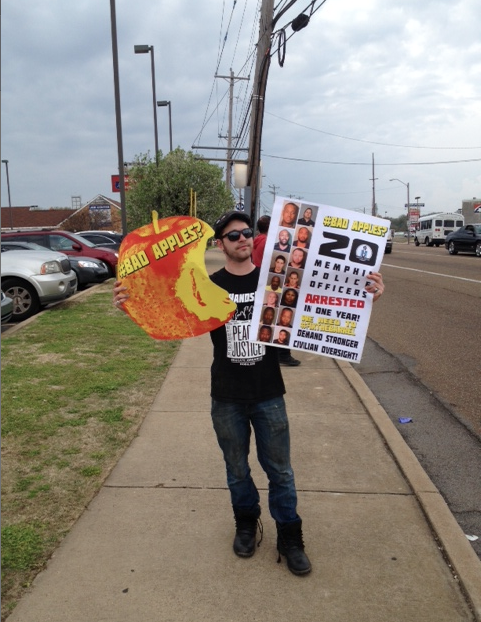 LG
LG 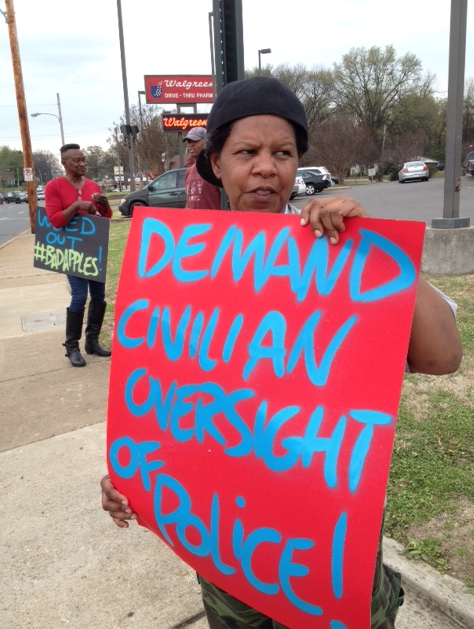
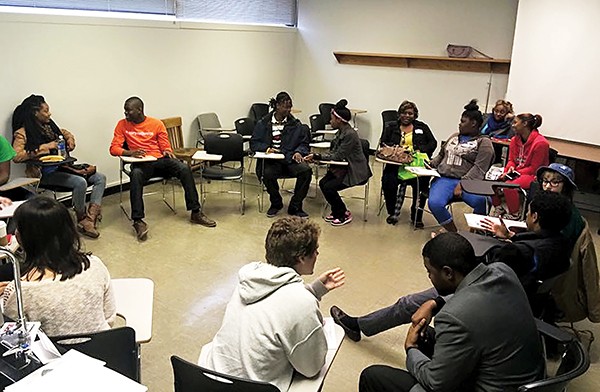
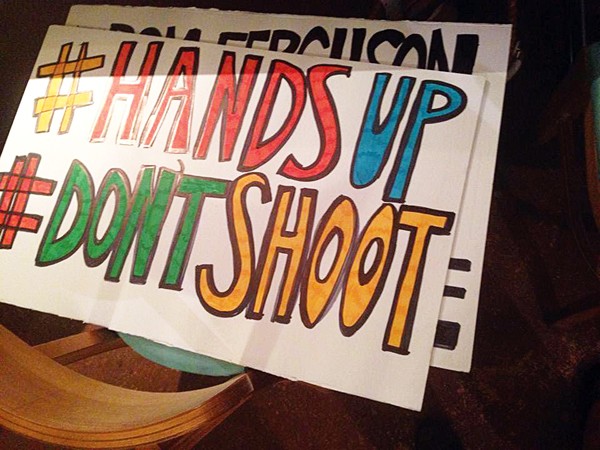 Memphis United Facebook Page
Memphis United Facebook Page 